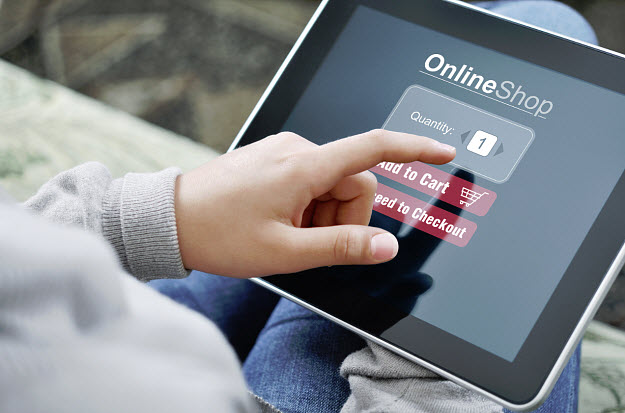Denny |
September 16, 2015
Paytm intends to launch its own bank in India in the near future
Paytm, an Indian electronic and mobile commerce organization, has announced plans to establish India’s first payments bank. The company intends to leverage its extensive mobile commerce experience, especially when it comes to mobile wallets, to establish a lead in the financial sector. The company has already found success in the mobile space by offering consumers access to its mobile wallet platform, which is expected to reach 150 million users by March 2016.
Several companies have been approved to launch their own banks in the country
Paytm is among 42 companies that have received approval from the Indian government to launch payment banks. The banks will take deposits and provide remittance and payment services. These banks are expected to be quite useful for migrant workers that need to send money to their home country. The banks will be unable to issue loans, however, but they will be able to provide a wealth of services to consumers that still do not have bank accounts.
Paytm will see relatively little competition with its new bank
 Operating in the mobile commerce space has given Paytm the experience it needs to find success with its payment bank. The company is expected to launch its payment bank before its competitors, which will give it a significant edge. Alibaba, a Chinese company that has established a major presence in the mobile commerce space, has plans to launch a payment bank of its own through its One97 Communications organization. The company will be significantly slower in launching this bank, however, and Paytm will have streamlined its financial services before any major competition enters the market.
Operating in the mobile commerce space has given Paytm the experience it needs to find success with its payment bank. The company is expected to launch its payment bank before its competitors, which will give it a significant edge. Alibaba, a Chinese company that has established a major presence in the mobile commerce space, has plans to launch a payment bank of its own through its One97 Communications organization. The company will be significantly slower in launching this bank, however, and Paytm will have streamlined its financial services before any major competition enters the market.
Mobile commerce companies are expanding into new territory
Mobile commerce continues to grow in popularity in India, which has become one of the world’s most attractive mobile markets. As companies specializing in mobile payments find more success, they are beginning to expand into new territory. These companies are bringing more competition into new sectors, which is forcing other companies to provide better services to consumers.
Denny |
September 11, 2015
Consumers are open to accepting geolocation tech in order to access in-store services.
According to the newly released results of a study conducted by Zebra Technologies in its Corporation Global Shopper Study, shoppers are open to using location based technologies while in store in order to be able to gain access to services and offers that will enhance their experiences.
The study results offer insight into a range of different consumer interests in terms of mobile tech use.
Among the participants in the survey, the majority expressed an interest in using relevant location based technology over a store’s WiFi in order to enhance their shopping experience. Among the types of services in which they expressed interest were mobile coupons (said 51 percent), in-store shopping maps (45 percent), and help from associates (41 percent). This was the eighth annual edition of this study by Zebra Technologies.
The study also showed that location based technology could offer real-time info that shoppers want.
 Among the respondents to this survey, 34 percent said that they felt that they had a better connection with a store through real-time information that they received through mobile devices than they did through the assistance of human associates working in the stores. At the same time, 64 percent of shoppers expressed that there was a greater likelihood that they would buy something if they felt that they were getting better customer services. Moreover, 52 percent of the participants in the research said that they valued retailers that improved the efficiency of the shopping experience through the use of technology.
Among the respondents to this survey, 34 percent said that they felt that they had a better connection with a store through real-time information that they received through mobile devices than they did through the assistance of human associates working in the stores. At the same time, 64 percent of shoppers expressed that there was a greater likelihood that they would buy something if they felt that they were getting better customer services. Moreover, 52 percent of the participants in the research said that they valued retailers that improved the efficiency of the shopping experience through the use of technology.
Over three out of every four shoppers (76 percent) stated that they had a positive feeling about the experience of shopping in brick and mortar stores, and almost half of all consumers believe that technology solutions are assisting retailers in being able to better their shopping experience.
More insight was provided about the potential value of location based technology when it was revealed that 53 percent of consumers said that they “showroomed”, that is, they went to a store in order to have a look at a product, in person, but then bought that same item online. Equally, about a third of shoppers preferred to buy a product online and then pick it up at their nearest retail location, instead of having it shipped.
 Operating in the mobile commerce space has given Paytm the experience it needs to find success with its payment bank. The company is expected to launch its payment bank before its competitors, which will give it a significant edge. Alibaba, a Chinese company that has established a major presence in the mobile commerce space, has plans to launch a payment bank of its own through its One97 Communications organization. The company will be significantly slower in launching this bank, however, and Paytm will have streamlined its financial services before any major competition enters the market.
Operating in the mobile commerce space has given Paytm the experience it needs to find success with its payment bank. The company is expected to launch its payment bank before its competitors, which will give it a significant edge. Alibaba, a Chinese company that has established a major presence in the mobile commerce space, has plans to launch a payment bank of its own through its One97 Communications organization. The company will be significantly slower in launching this bank, however, and Paytm will have streamlined its financial services before any major competition enters the market.
 Among the respondents to this survey, 34 percent said that they felt that they had a better connection with a store through real-time information that they received through mobile devices than they did through the assistance of human associates working in the stores. At the same time, 64 percent of shoppers expressed that there was a greater likelihood that they would buy something if they felt that they were getting better customer services. Moreover, 52 percent of the participants in the research said that they valued retailers that improved the efficiency of the shopping experience through the use of
Among the respondents to this survey, 34 percent said that they felt that they had a better connection with a store through real-time information that they received through mobile devices than they did through the assistance of human associates working in the stores. At the same time, 64 percent of shoppers expressed that there was a greater likelihood that they would buy something if they felt that they were getting better customer services. Moreover, 52 percent of the participants in the research said that they valued retailers that improved the efficiency of the shopping experience through the use of 